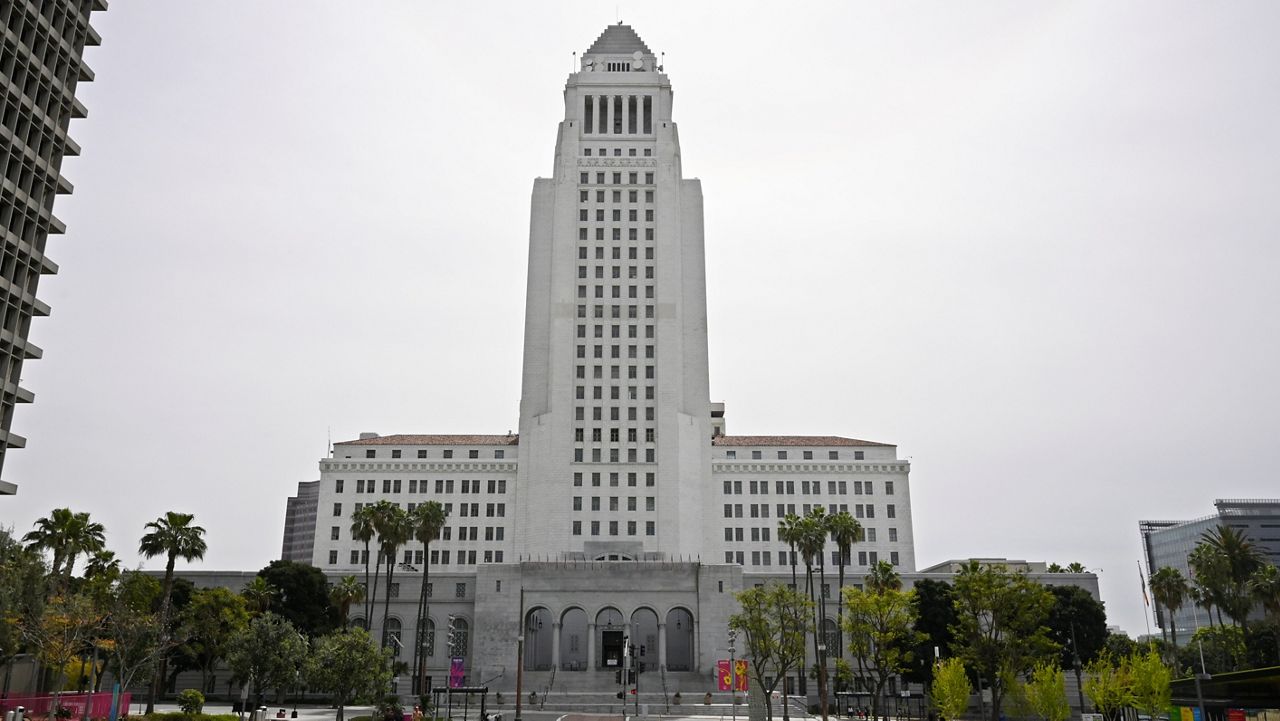LOS ANGELES (CNS) — The Los Angeles City Council on Wednesday delayed for 60 days a decision on whether to preserve the home of gay-rights pioneer Morris Kight, who is considered one of the “founding fathers of the American LGBTQ civil rights movement.”
In a 12-2 vote, the council decided to consider designating the home a Historic Cultural Monument on Aug. 8. The residence is already listed on the National Register of Historic Places and the California Register of Historical Resources as a historic resource, according to city’s Planning Department.
Councilwoman Eunisses Hernandez, who represents the 1st District where the 1911 California bungalow home is located, called for her colleagues to delay the decision because it is a “land use issue.”
“My office remains concerned about designating the home on this property given that it is an unmaintained single-family home in the middle of one of the most densely populated neighborhoods in the city,” Hernandez said.
“Over 58% (of the population) is immigrant (including a) significant number of people of color, mostly monolingual speakers, where we desperately need housing,” she added.
Previously, Hernandez introduced an amendment to declare Kight’s home with a lesser “site of” designation, which would allow the property owner to demolish or redevelop the site. However, the Council’s Planning and Land Use Management Committee denied the councilwomen’s amendment.
The Planning Department indicated that if Kight’s home is locally designated a Historic Cultural Monument, the property owner could still develop new housing at the site while preserving the home.
“We believe that it warrants an extension, so that departments can provide an analysis of the cost, timeline and profit process involved to show whether that is actually viable,” Hernandez said.
The councilwoman said the district would better benefit from a community health center or affordable housing at the site that provides “access to the community” while uplifting Kight’s legacy.
The 60 days would also provide an opportunity for potential offers to buy the home. Hernandez noted that the AIDS Health care Foundation, which has advocated for the preservation of the home, could buy the home and preserve it.
Councilwoman Monica Rodriguez voted no, saying she was “very strongly against” continuing the item.
“We are merely considering whether or not this site, which was the property of Mr. Kight, should be designated,” Rodriguez said. “The facility, regardless of what its condition is, the only consideration that we have to give today as a Council is to whether or not we’re going to honor this designation as a historic property.”
Ken Bernstein, a representative of the city’s Planning Department, clarified that the extension would not negatively impact the designation process.
“There was a letter submitted to the file this morning from the property owner agreeing to (the) potential 60-day continuance,” Bernstein said.
In addition, during the 60 days, the site will be protected from being demolished. Bernstein also indicated the home has federal and state protections.
“Any demolition permit would almost trigger the requirement for a full environmental impact report to be prepared including a full exploration of preservation alternatives and the feasibility of those alternatives,” he said.
Ultimately, Hernandez had the support of her colleagues to delay the decision whether to designate the home a Historic Cultural Monument.
“This does not mean saying no to this designation,” Council President Paul Krekorian said. “It just means giving us the time to try to figure out an appropriate solution and ideally, maybe, having somebody who can acquire this property and preserve it, which would be the best possible solution.”
Kight moved to Los Angeles from New Mexico in 1958, and was instrumental in founding multiple local gay rights organizations, including the Christopher Street West gay pride parade, Aid For AIDS and the Gay Community Center (now the Los Angeles Gay and Lesbian Center). He was also active in the labor and civil rights movements.
Kight died in Los Angeles in January 2003 at the age of 83.




